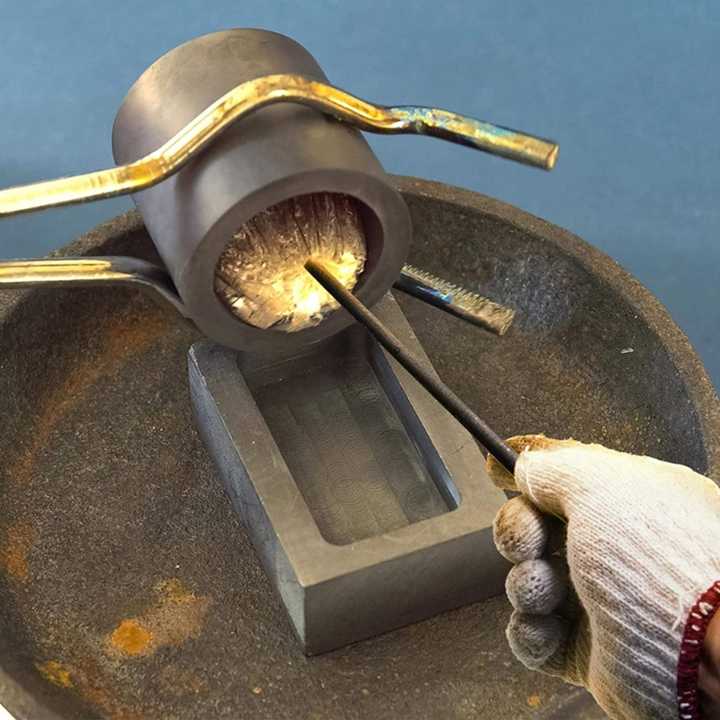A Guide to Refining 14kt Gold for High-Purity Recovery
Refining 14kt gold to increase its purity is a valuable process for jewelers, gold dealers, and individuals looking to reclaim and recycle gold. Since 14kt gold is composed of approximately 58.5% pure gold mixed with other metals, refining allows for the separation of pure gold from these impurities. This article will cover the basics of refining 14kt gold, the methods used, and essential considerations for maximizing purity.
Understanding 14kt Gold and the Refining Process
14kt gold refining involves separating the pure gold from other metals like silver, copper, and zinc, which are typically alloyed to create the 14kt gold blend. In refining, various methods can be used to dissolve or melt down the gold, allowing impurities to be removed and yielding higher-purity gold. The most common processes include chemical and electrolytic methods, each with specific advantages and applications depending on the quantity and desired purity.
Methods for Refining 14kt Gold
There are several methods for 14kt gold refining, each suited for different refining goals. Chemical refining, also known as aqua regia refining, uses a combination of hydrochloric and nitric acid to dissolve the gold, leaving impurities behind. For larger-scale refining, electrolytic refining is often preferred, as it achieves high-purity results through the use of electric current to separate pure gold onto a cathode. Another method, cupellation, involves heating the gold and allowing non-gold metals to oxidize and separate.
Benefits of Refining 14kt Gold
Refining 14kt gold has several benefits, from financial savings to environmental impact. By reclaiming pure gold from 14kt sources, jewelers and gold dealers can reduce costs associated with purchasing new gold. Additionally, 14kt gold refining supports sustainable practices by recycling precious metals rather than relying on new gold mining, which has significant environmental consequences. High-purity gold is also more versatile and valuable, making it easier to use in various applications.
14kt Gold Refining Using Aqua Regia
One of the most common chemical methods for refining 14kt gold is the aqua regia process. This technique uses a mix of hydrochloric and nitric acid to dissolve gold while separating impurities, which can then be filtered out. While effective, this method requires safety precautions due to the acids used. The process also includes a neutralization step, which ensures that all chemicals are safely disposed of. Aqua regia is ideal for small to medium batches, providing a relatively straightforward way to refine 14kt gold.
Electrolytic Refining for 14kt Gold
For larger operations or those needing a high level of purity, electrolytic refining is a preferred choice. This method involves immersing 14kt gold in an electrolyte solution and using an electric current to deposit pure gold onto a cathode. The process is efficient, allows for easy recovery of other metals, and yields high-purity gold. However, it may require a more significant investment in equipment, making it best suited for refiners working with larger quantities of 14kt gold.
Factors to Consider in 14kt Gold Refining
When refining 14kt gold, several factors can impact the quality and efficiency of the refining process. First, the type and quantity of alloy metals present may require adjustments to the refining method. The choice between chemical and electrolytic processes depends on factors like desired purity, equipment availability, and the scale of operation. Safety precautions are essential, particularly when handling chemicals or operating refining equipment, as these processes involve heat, acids, and electric currents.
Recycling and Reusing Gold from 14kt Refining
Refining 14kt gold not only yields pure gold but can also produce byproducts that are valuable on their own. Silver, copper, and other metals often alloyed in 14kt gold can be collected during the refining process. These recovered metals can be reused in various applications, adding another layer of value. By recycling metals, 14kt gold refining contributes to a sustainable industry and reduces the need for raw material extraction, supporting environmental responsibility.
Refining 14kt gold provides a practical way to reclaim pure gold, reduce costs, and promote sustainability. By understanding the available methods, benefits, and considerations, refiners can make informed choices to achieve high-purity results.


